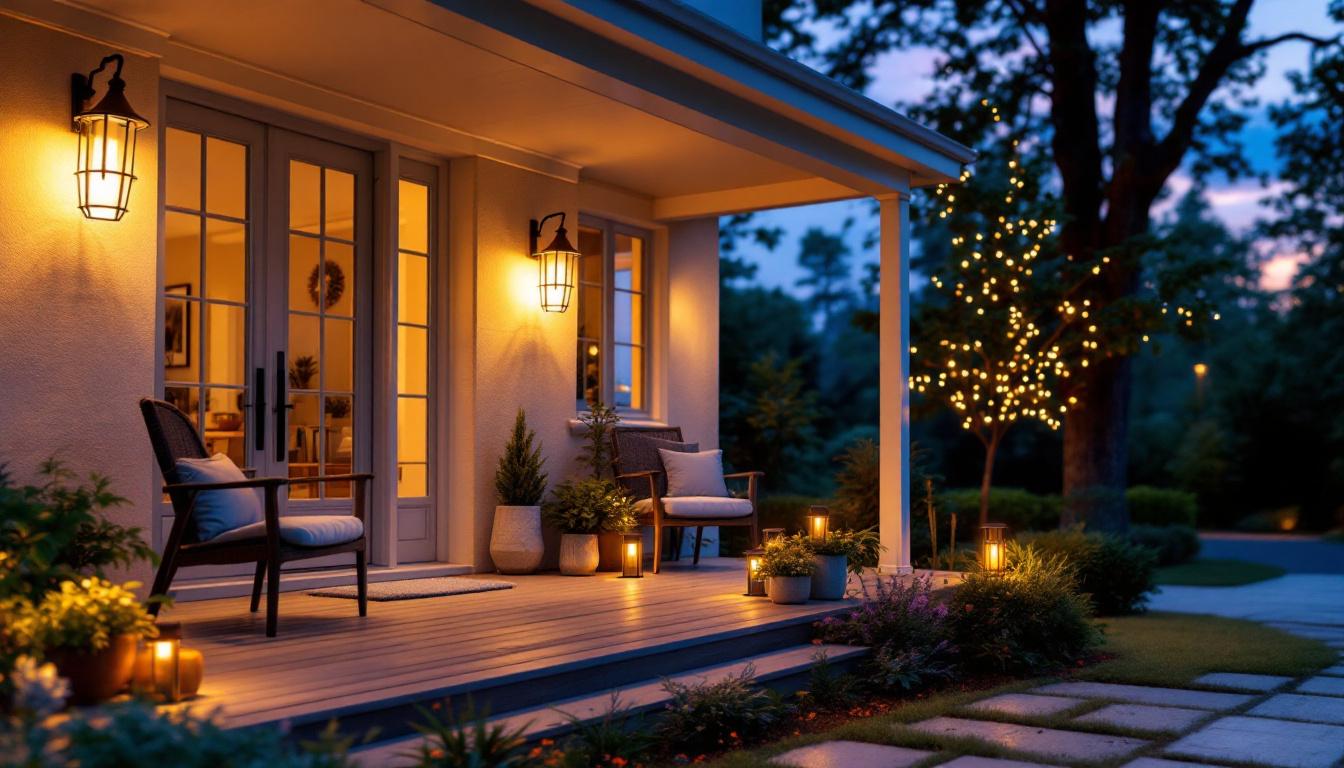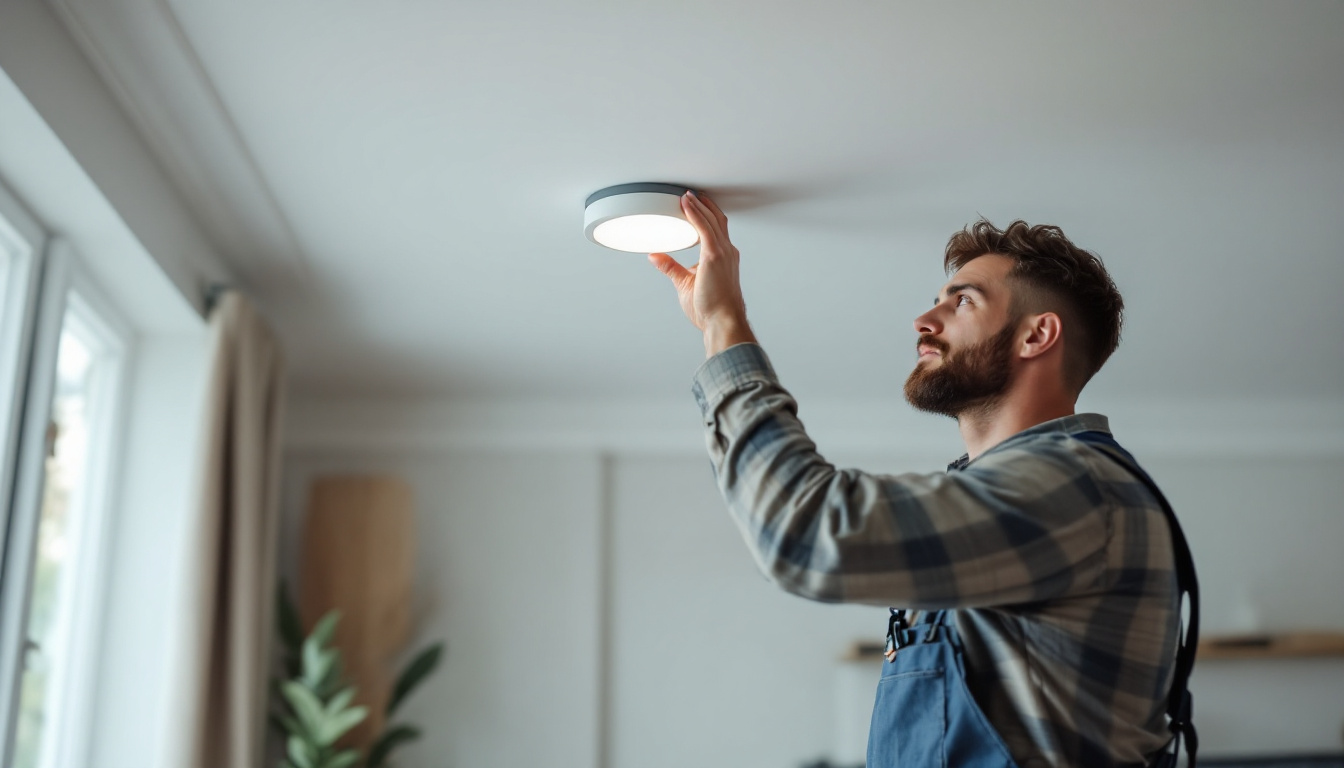
As the demand for energy-efficient lighting solutions continues to rise, solar lighting has emerged as a popular choice for homeowners and contractors alike. Among the various applications of solar lighting, front porch solar lights stand out for their practicality and aesthetic appeal. This article delves into the intricacies of front porch solar lights, offering insights specifically tailored for lighting contractors.
Solar lighting technology has evolved significantly over the years, making it a viable option for various outdoor settings. At its core, solar lighting harnesses sunlight through photovoltaic cells, converting it into electricity to power LED lights. This process not only reduces energy consumption but also minimizes the carbon footprint associated with traditional lighting solutions. Additionally, advancements in solar technology have led to improved efficiency and durability, allowing these systems to perform optimally even in less-than-ideal weather conditions. As a result, homeowners and businesses alike are increasingly turning to solar lighting as a sustainable choice for their outdoor illumination needs.
Front porch solar lights typically consist of several key components: solar panels, batteries, LED bulbs, and a control system. The solar panels collect sunlight during the day, charging the batteries that store energy for nighttime use. The LED bulbs provide bright illumination while consuming minimal power, ensuring longevity and efficiency. Moreover, many modern solar lights are designed with integrated sensors that can adapt to varying light conditions, automatically adjusting brightness levels to enhance visibility while conserving energy.
The control system is crucial as it regulates the operation of the lights, turning them on at dusk and off at dawn. Some advanced models come equipped with motion sensors, allowing for enhanced functionality and energy savings. These sensors can detect movement and activate the lights only when necessary, further extending battery life. Understanding these components is essential for contractors when selecting and installing solar lights effectively, as it ensures that the chosen system meets both the aesthetic and practical needs of the homeowner.
Front porch solar lights come in a variety of styles and designs, catering to different aesthetic preferences and functional needs. Common types include wall-mounted fixtures, post lights, and decorative lanterns. Each type serves a unique purpose and can significantly enhance the curb appeal of a home. For instance, wall-mounted fixtures are often sleek and modern, providing a clean look that complements contemporary architecture, while more traditional homes may benefit from vintage-style lanterns that evoke a sense of nostalgia.
Wall-mounted fixtures are ideal for illuminating entryways, while post lights can be strategically placed along pathways or on porch columns. Decorative lanterns add a touch of charm and can serve as focal points in outdoor spaces. Furthermore, some solar lights are designed with adjustable brightness settings or color temperature options, allowing homeowners to customize the ambiance of their outdoor areas. Contractors should consider the architectural style of the home and the specific lighting needs when recommending a type of solar light, ensuring that the final selection not only meets functional requirements but also enhances the overall aesthetic appeal of the property.
There are numerous advantages to installing front porch solar lights, making them an attractive option for homeowners. Understanding these benefits can help contractors effectively communicate the value of solar lighting to their clients.
One of the most significant benefits of solar lights is their energy efficiency. By relying on sunlight as their power source, solar lights eliminate electricity costs associated with traditional lighting. This can result in substantial savings for homeowners over time, making solar lights a financially attractive option.
Additionally, many solar lights come with long-lasting LED bulbs that can last for years without needing replacement. This further reduces maintenance costs and enhances the overall value proposition of solar lighting solutions.
Solar lights contribute to a more sustainable future by reducing reliance on fossil fuels. By harnessing renewable energy, these lights help lower greenhouse gas emissions and minimize the environmental impact associated with conventional lighting systems. For contractors, promoting the environmental benefits of solar lighting can resonate with eco-conscious clients.
Furthermore, many solar lights are designed with recyclable materials, further aligning with sustainable practices. This aspect can be a compelling selling point for contractors looking to appeal to environmentally aware homeowners.
While front porch solar lights offer numerous benefits, proper installation is crucial to ensure optimal performance. Contractors must consider several factors during the installation process to achieve the best results.
Before installation, a thorough site assessment is essential. Contractors should evaluate the amount of sunlight the installation area receives throughout the day. Ideally, solar panels should be placed in locations that receive direct sunlight for several hours to maximize energy absorption.
Obstructions such as trees, buildings, or awnings can significantly impact the performance of solar lights. Identifying these obstructions early on can help contractors recommend the best placement for solar lights, ensuring they operate efficiently.
Not all solar lights are created equal, and contractors must choose products that meet the specific needs of their clients. Factors such as brightness, battery capacity, and design should be taken into account. For front porches, lights with higher lumens may be necessary to provide adequate illumination for safety and aesthetics.
Contractors should also consider the quality of the materials used in the solar lights. High-quality products are more likely to withstand the elements and provide reliable performance over time. Researching reputable brands and reading customer reviews can aid in selecting the best options for clients.
While solar lights require less maintenance than traditional lighting systems, some upkeep is still necessary to ensure optimal performance. Contractors should educate homeowners on basic maintenance practices to prolong the lifespan of their solar lights.
One of the simplest yet most effective maintenance tasks is cleaning the solar panels. Dust, dirt, and debris can accumulate on the panels, reducing their efficiency. Homeowners should be advised to clean the panels periodically, especially after heavy storms or windy conditions.
Using a soft cloth and mild soap can help remove grime without scratching the surface. Contractors can provide homeowners with guidelines on how often to clean the panels based on local environmental conditions.
Despite their reliability, solar lights can encounter issues from time to time. Contractors should be prepared to troubleshoot common problems, such as dim lighting or lights not turning on. Often, these issues can be resolved by checking the battery connections or ensuring the solar panels are clean and unobstructed.
If a solar light is not functioning properly, it may be due to a faulty battery or LED. In such cases, contractors should guide homeowners on how to replace these components or recommend professional assistance if needed.
In addition to their functional benefits, front porch solar lights can enhance the overall aesthetics of a home. Contractors can leverage this aspect to help clients achieve their desired outdoor ambiance.
When selecting solar lights, it’s essential to consider the architectural style of the home. For instance, modern homes may benefit from sleek, minimalist designs, while traditional homes might look better with classic lantern-style fixtures. Contractors should encourage clients to choose lights that complement their home’s design to create a cohesive look.
Moreover, the placement of solar lights can significantly impact the visual appeal of the front porch. Strategically positioning lights to highlight architectural features or landscaping can create an inviting atmosphere, enhancing curb appeal and making the home more welcoming.
Developing a comprehensive lighting plan can help homeowners visualize how solar lights will enhance their outdoor space. Contractors can collaborate with clients to identify key areas that require illumination, such as pathways, entryways, and seating areas.
By creating a balanced lighting scheme, contractors can ensure that the front porch is not only functional but also aesthetically pleasing. This approach can lead to increased satisfaction for homeowners and potentially more referrals for contractors.
The solar lighting industry continues to evolve, with new technologies and trends emerging regularly. Staying informed about these developments can provide contractors with a competitive edge in the market.
Smart technology is making its way into solar lighting, allowing for enhanced control and customization. Homeowners can now connect solar lights to their smartphones, enabling them to adjust brightness levels, set timers, and even monitor energy usage remotely.
Contractors should familiarize themselves with these smart solar lighting options, as they can offer clients greater flexibility and convenience. Additionally, promoting smart solar lights can position contractors as forward-thinking professionals in the industry.
As consumer preferences shift, manufacturers are introducing innovative designs and features to meet the demands of modern homeowners. From decorative solar string lights to solar-powered garden stakes, the variety of options available is expanding.
Contractors should stay abreast of these trends and be prepared to offer clients a diverse range of products that align with their preferences. By doing so, contractors can enhance their service offerings and cater to a broader audience.
Front porch solar lights represent an exciting opportunity for lighting contractors to provide energy-efficient, aesthetically pleasing solutions to homeowners. By understanding the technology, benefits, installation considerations, and future trends, contractors can position themselves as knowledgeable experts in the field.
As the demand for sustainable lighting solutions continues to grow, embracing solar technology can lead to increased client satisfaction and potential business growth. By effectively communicating the advantages of front porch solar lights and staying informed about industry developments, contractors can thrive in this evolving market.
Ready to elevate your lighting projects with the best in solar technology? At LumenWholesale, we provide lighting contractors like you with the highest quality, spec-grade front porch solar lights at unbeatable wholesale prices. Say goodbye to local distributor markups and hello to our extensive selection that meets rigorous industry standards. With free shipping on bulk orders, you can trust that you’re getting premium lighting solutions at the best value — no hidden fees, no compromises. Enhance your service offerings and delight your clients with the perfect blend of quality, affordability, and convenience. Explore our wholesale lighting options today and light up your next project with confidence.

Discover how solar security lights can revolutionize outdoor lighting projects by enhancing efficiency and sustainability.

Discover innovative cost-saving strategies for lighting contractors using 4-inch can lights.

Explore the timeless appeal of vintage gas station lights and discover how lighting contractors can leverage this nostalgic trend to enhance their projects and boost business success..

Discover the common oversights lighting contractors make when dealing with LED lights in round fixtures.